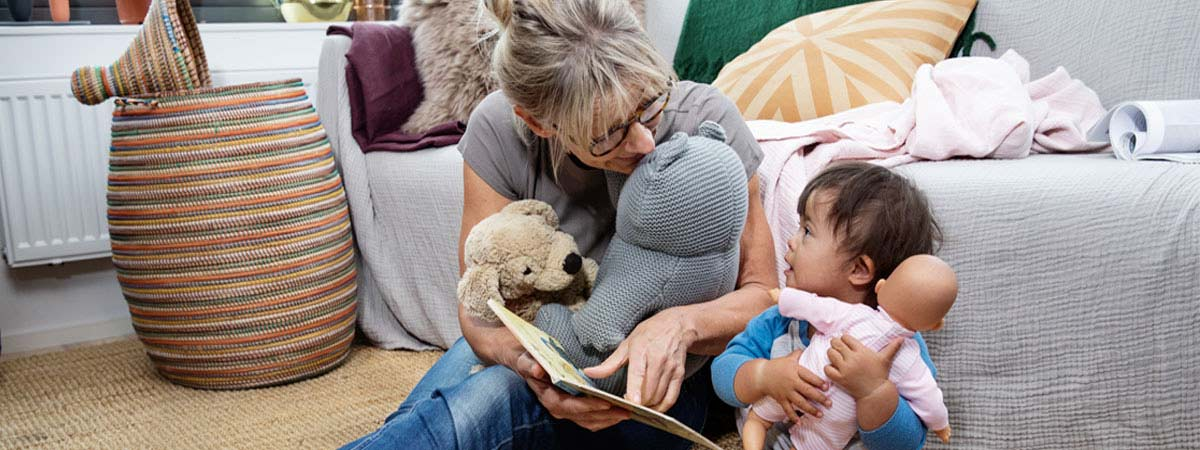
How do I choose a nursery school?
Time for nursery school? A new chapter of life starts now. But what's the right choice for you? Sibling groups, special teaching methods, private or municipal nursery? This is an important decision that can be difficult. Below are a few questions that could help you make the right choice.
Your child will spend lots of time at their nursery school or with their childminder. So you need to find a safe, fun environment, where your child can play and learn. At the same time, the staff should be inspirational and loving and you should feel secure in leaving your child here for such a long time.
Profiles and teaching methods
A good nursery school offers somewhere creative but not chaotic. It's about which methods the nursery follows, for example, Montessori, Waldorf, Reggio Emilia or "Come rain or shine”.
There are usually several local nursery schools to choose from. Make an appointment in good time - at least six months in advance - and choose one that you think both you and your child will be happy with.
In a lot of areas it can be difficult to secure a place at the most popular nursery schools. In the municipal queue system, they usually prioritise siblings and local residents.
Different types of childcare
• Open nursery schools. Free childcare that you are welcome to visit before your child attends nursery school.
• Privately-run nursery schools. There are usually a few parent-cooperative nursery schools - perhaps an alternative for people who want to be more involved in their child's nursery school. Others are run as staff cooperatives or non-profit associations. Profit-driven nursery schools can be a bit of a red flag - check that profit doesn't come before quality. There's usually a profile or particular educational approach, see above.
• Municipal nursery school. There can be different educational approaches among the municipal nursery schools too. Visit your Municipality's website and find out about the local alternatives.
• Family daycare. Generally called a nanny and is a government-employed childminder, who accepts a small group of children into their home. This might be an alternative for people who think nursery schools feel a bit too big. Ask about what happens if the nanny gets sick. Is your child then welcome to go to another nanny, or nursery school, or are you expected to stay at home yourself?
Small groups are better
Most experts agree that small groups provide a better quality of nursery school.
The Swedish National Agency for Education recommends groups of max 12 toddlers aged 1-3 to three full-time nursery school staff. For 4 to 5-year-olds the recommendation is max 15 children per group.
It's up to each municipality to decide how many children each nursery school can accept, so it's not uncommon with groups of 16 to 17 children, or even more in the larger cities. Studies have shown, however, that there are disadvantages with larger groups, even if you try to compensate with more adults.
What characterises a good nursery school?
Below we've drawn up a few questions that could be worth thinking about when you visit the different nursery schools:
• How many teachers/staff are there per child? The more, the better.
• How high is the staff turnover? If the staff turnover is low, that could mean that the staff are happy there.
• What do they focus more on, are there any particular teaching methods?
• What are the indoor and outdoor environments like?
• As a parent, do you have any opportunities to influence things and if so, how?
• Are there sibling groups or age-based groups?
• What usually happens during the induction period, are you welcome to influence the way you want it to happen?
Obviously you should go with your gut reaction after the visit too. How was the atmosphere? How did the staff seem? How did they treat your child, if you had your child with you? First impressions are important.
Have a read of our article containing preparation advice for nursery school induction.
